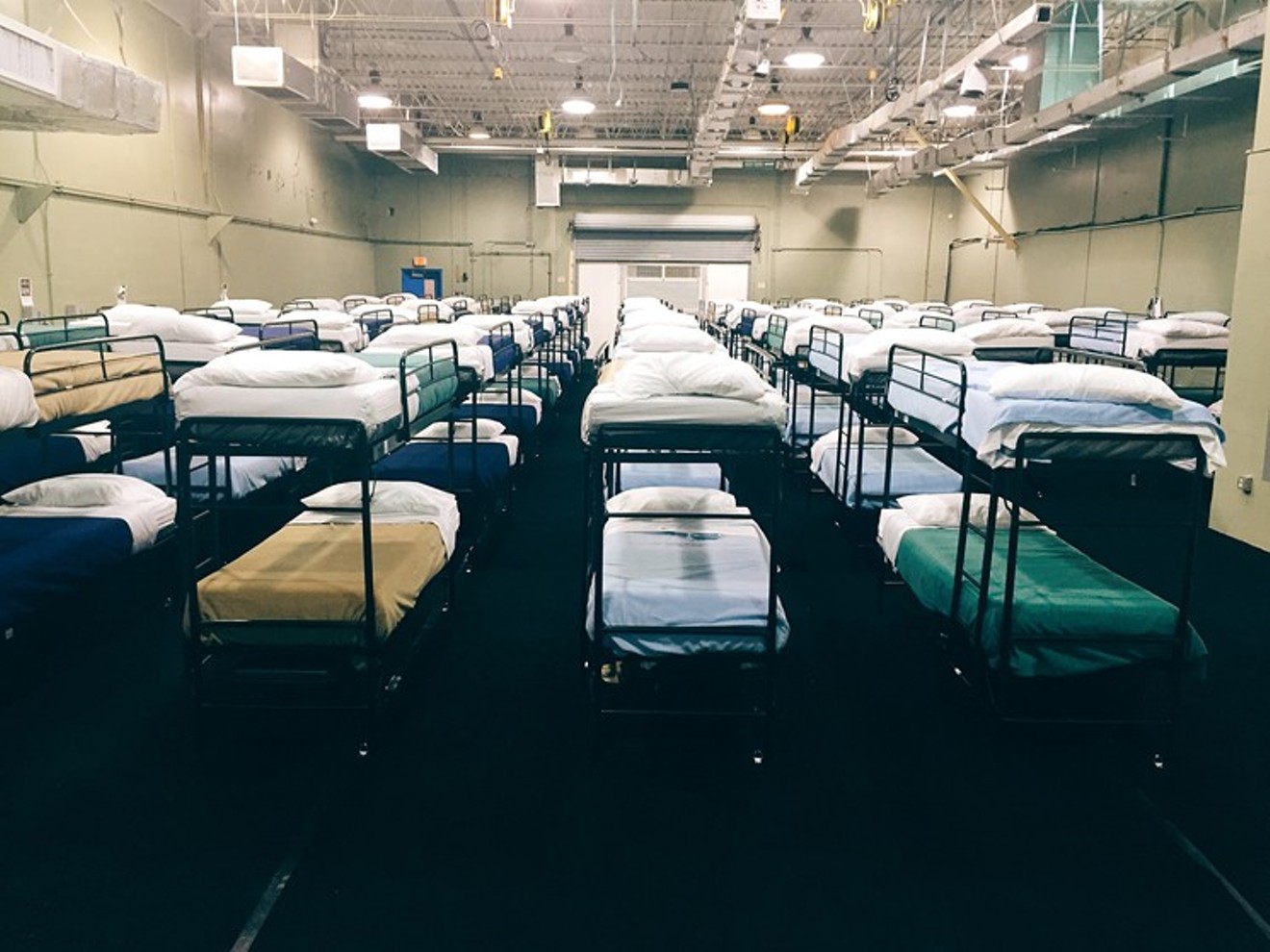But yesterday, federal officials announced in a letter they'll be adding another 850 beds to the facility by mid-April. That will bring the camp's total population to 3,200 kids.
The U.S. Office of Refugee Resettlement (ORR) says the government needs to enlarge the Homestead camp due to an alleged influx of unaccompanied minors (UACs) at the U.S.-Mexico border:
Due to the crisis on the southern border, ORR is facing a dramatic spike in referrals of UAC. In FY 2019, ORR has already received referrals of approximately 32,000 UAC (as of March 30), which is an increase over FY 2018 of almost 50%. If this rate of referrals continues, ORR will care for the largest number of UAC in the program’s history in FY 2019. Based on the anticipated growth pattern in referrals of UAC from DHS to HHS, HS is preparing for the need for high bed capacity to continue.The facility previously held children taken from their parents at the border as part of the Trump administration's hideous "zero tolerance" policy designed to abuse immigrants seeking legal asylum in the United States. ORR officials say the Homestead camp no longer holds any separated children. The camp also does not hold any migrant kids from the now-closed Tornillo camp.
But while the federal government claims it must keep children at the site while they await immigration proceedings, civil rights activists say the facility is a travesty that ought to be shut down. Earlier this year, a protest group that previously centered on the Tornillo camp moved its operations to Miami as part of its "Target: Homestead" campaign. Protesters now sit outside the facility's entrance most days. Child-welfare advocates argue the kids ought to be sent to live with sponsors — and, at a minimum, be allowed to live in a temporary facility where they're free to leave the premises.
The Homestead camp is also, controversially, run by a team of for-profit contractors. The largest, Comprehensive Health Services, has a nearly $200 million contract to operate the shelter. In 2018, an investment firm called D.C. Capital Partners — a company that employs ex-federal employees, including former National Security Agency (NSA) Director Michael Hayden — bought Comprehensive Health. (As of 2017, D.C. Capital Partners even employed then-Homeland Security Director John Kelly.) D.C. Capital then merged Comprehensive Health into a larger company called Caliburn International.
Last year, New Times reported that D.C. Capital Partners wanted to take Caliburn International public and sell $100 million in Class A stock options. But after media and activist scrutiny, Caliburn killed that proposal.
New Times toured the Homestead facility in February. Certain areas of the compound look just like an elementary school — kids line up for meals in a well-lit cafeteria and play outside on the soccer field. But other areas feel downright prison-like. Younger detainees sleep 12 to a room in tiny dorms, which are locked at night. Older kids sleep in bunk beds in a massive, warehouse-like room kept at a frigid temperature. The children wear tracking bracelets, are monitored from room to room, and are not allowed to touch one another. They are not allowed to have visitors except their lawyers and sponsors.New:
— Laura C. Morel (@lauracmorel) April 2, 2019
The government is adding more beds to the Homestead shelter for unaccompanied children in South Florida, going from 2,350 to 3,200 beds beginning in mid-April. https://t.co/Tsj1nBjsyY
Accusations of mistreatment have dogged the facility. The camp houses kids ages 13 to 17 — but on the day those children turn 18, Immigration and Customs Enforcement agents handcuff the teens and immediately send them to an adult detention facility in Broward County. Immigrant-rights groups say this practice violates federal law.
The Southern Poverty Law Center has also claimed in a lawsuit that kids are being intentionally detained for longer periods so ICE can use them as "bait" to catch adult sponsors eligible for deportation. Many recent immigrants sponsor migrant kids, and the SPLC accuses ICE of hunting through sponsor lists to deport more people. The SPLC also alleges that one kid inside the Homestead camp became so stressed by his prolonged stay that he was hospitalized for stress-induced migraines.
A report from the News Service of Florida last month also noted that the State of Florida had investigated six different sexual misconduct claims at the facility — four made against other children and two made against workers.
Earlier this year, child-welfare advocates told HuffPost they were worried about the level of care inside the camp. The doctors and activists warned that as the population rose from 1,350 to 2,350, children were crammed together "like sardines." That, of course, was before the government announced plans to add nearly 1,000 more teens.












